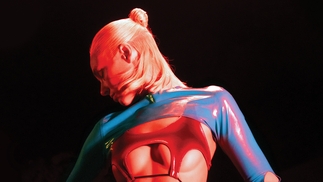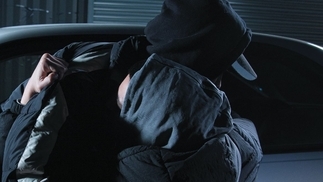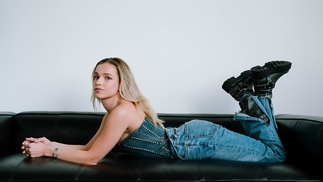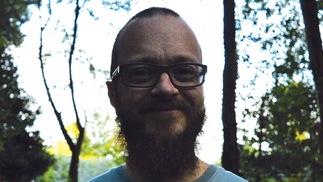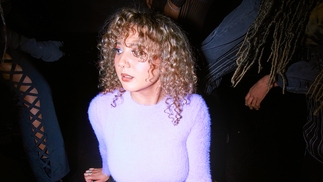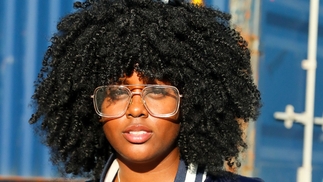Get to Know: Iceboy Violet
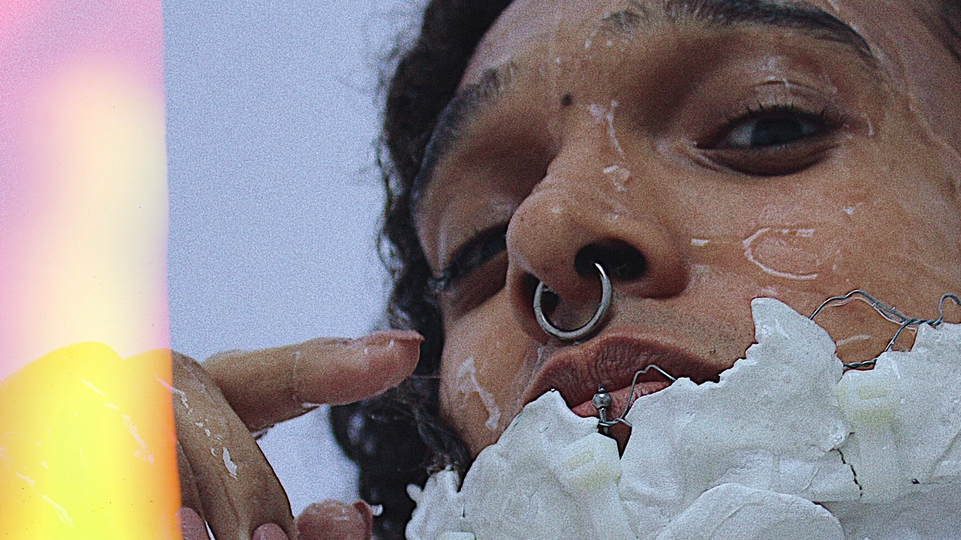
Get acquainted with Iceboy Violet, the Manchester-based artist infusing their take on hip-hop with emotional realness
“I was really into J Dilla and Madlib — like, really, really into them,” says Iceboy Violet. “I want to make something as special as Dilla did.” When we speak to Violet, it feels particularly poignant; it’s the anniversary of J Dilla’s death, and their new mixtape ‘The Vanity Project’ is about to drop via Local Action’s 2BREAL. It boasts an outrageous list of collaborators: Space Afrika, Emily Glass, Jennifer Walton, Slikback, Nick Leon, Mun Sing (of Giant Swan), Exploited Body and aya, under her LOFT alias, have all contributed production to the project.
Surprisingly, collaboration is new for the Manchester-based artist. “I’m not a control freak,” they begin, “I’m terrified to collaborate with people, for the most part, because all my friends are really incredible musicians. I find it hard to keep up.”
‘The Vanity Project’ is a hip-hop mixtape in the truest sense, mostly featuring Violet’s own stream of consciousness as they rap about topics like heteronormativity, wealth disparity and self-harm over the productions of their collaborators, apart from ‘Lilith’, where their bars are intertwined with those of Blackhaine, DÆMON and Orlandor.
Violet was introduced to hip-hop via a friend’s tape, which featured the likes of Eminem and MOP. “When I got into hip-hop and MC music, that was that,” they remember. “The playfulness of using words like that and clearly communicating a message just got me.” And upon arriving in Huddersfield for university, they met American hip-hop’s British cousin, grime. “Grime was hip-hop, but I could relate to it,” says Violet. “It was voices that I recognised, talking about places that I understood. It made me feel less alone.”
Their later discovery of artists like Actress, Holly Herndon and Arca proved to be another revolutionary turning point. “It’s very hard to listen to their work when you’re making hip-hop and not feel like there’s a whole world out there to explore,” they explain. “So I just started fucking with the tempo on Ableton and moving outside of just making hip-hop beats.”
Violet grew up absorbing music TV channels like MTV and Smash Hits, in the days of MySpace, before social media’s explosion. Back then, videos and live performances were a key part of any artist’s identity. “For me, at first, music was really about this entire package with the visuals and the aesthetics. It was this projection of an ideal. I wanted to be a pop star.”
Undoubtedly, one of the most powerful ways to experience Violet’s music is through their performances. “I’ve got a mic for 30 minutes and, whether you like it or not, you’re gonna have to listen,” they begin. “I try to make it so that you’ll like it, but I’m not necessarily gonna make it comfortable.” But it’s not all doom and gloom. “I’m being resilient and sad — it has a sense of hope to it,” they explain. “We talk about some horrible stuff, and then at the end, I walk through the audience and hug people, if they’re comfortable with it. We’re all coming to experience this together, so I try to end on something hopeful.”
For much of their life, Iceboy Violet has been writing down their thoughts and feelings, irrespective of their potential for music material. And despite the traditional hip-hop format of ‘The Vanity Project’, it’s Violet’s emotional realness that makes it so impactful. “There’s a lack of space for emotions and connection that doesn’t sit right with me about the machismo in hip-hop,” says Violet. “I can’t write from a place I’m not in.”
